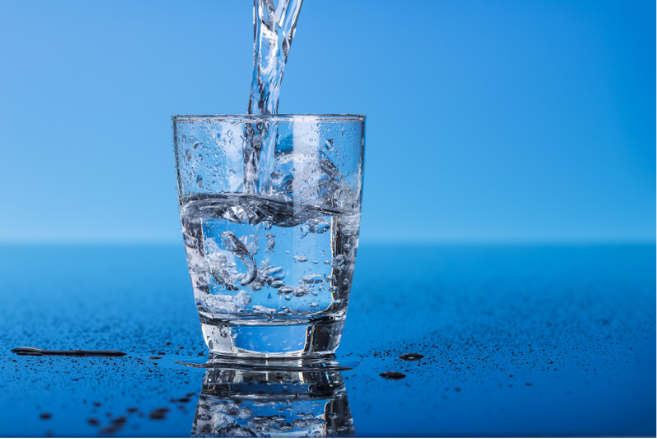Why a Water Purification System Is Essential for Clean, Safe Water
Access to clean, safe water is a basic human right and a keystone of public health and wellness. The presence of unsafe impurities such as pathogens, heavy steels, and chemical pollutants in our water supply raises significant concerns regarding health and health. A water purification system stands as a vital solution to alleviate these dangers, guaranteeing that people and communities can access risk-free drinking water. Understanding the intricacies of these systems and their numerous techniques is essential, especially as we think about the ramifications for wellness end results and ecological sustainability in our every day lives.
Significance of Tidy Water
Accessibility to tidy water is a basic need for human health and well-being. Contaminated water can lead to significant wellness issues, including stomach diseases, cholera, and dysentery, especially in susceptible populations such as youngsters and the senior.
In addition, tidy water is important for cleanliness and hygiene practices, which are essential in protecting against the spread of transmittable illness. Sufficient supply of water sustains appropriate sanitation centers, advertising a much healthier environment. In addition, accessibility to safe water affects socioeconomic factors, as it makes it possible for neighborhoods to participate in farming and commercial tasks, ultimately contributing to financial development.
In lots of regions, the lack of clean water intensifies destitution and inequality, additional hindering progression toward lasting development objectives. As a result, guaranteeing accessibility to clean water is not just a public health essential yet likewise a keystone for social equity and financial development. Initiatives to improve water high quality and infrastructure have significant benefits, promoting healthier neighborhoods and boosting quality of life.

Usual Impurities in Water
Making sure the schedule of clean water is weakened by different impurities that can endanger its security and high quality. The presence of virus, such as infections, microorganisms, and parasites, poses considerable wellness dangers, particularly in locations lacking ample cleanliness. These bacteria can cause waterborne diseases, leading to severe ailment or even fatality.
Chemical contaminants also offer an essential concern. Hefty metals, including mercury, arsenic, and lead, commonly enter water materials with industrial discharges or corroded plumbing. These compounds can accumulate in the body over time, leading to long-lasting health and wellness problems such as neurological damages and developmental problems.
In addition, agricultural overflow introduces pesticides and plant foods right into water systems, which can disrupt ecosystems and negatively impact human health. Nitrates, typically found in fertilizers, can trigger serious problems like methemoglobinemia, specifically in infants.
Benefits of Water Purification Equipments
Recognizing the important demand for secure drinking water, water purification systems provide a myriad of benefits that improve public health and environmental sustainability. Primarily, these systems effectively eliminate dangerous impurities, consisting of germs, infections, hefty metals, and chemicals, making sure that the water taken in is without toxins and microorganisms. This reduction in contaminants significantly decreases the threat of waterborne illness, advertising overall area wellness.
Along with health advantages, water filtration systems add to ecological sustainability by lowering dependence on bottled water, which frequently generates too much plastic waste. By utilizing a purification system, houses can reduce their carbon footprint and add to a much more lasting ecological community. Moreover, these systems can enhance the preference and odor of water, making it more tasty for daily intake.

Different Kinds Of Purification Approaches

One typical method is reverse osmosis, which makes use of a semi-permeable membrane layer to different water from liquified solids and impurities. This procedure effectively minimizes pollutants, including heavy steels and chemicals. An additional extensively made use of technique is ultraviolet (UV) disinfection, which employs UV light to reduce the effects of germs and infections, rendering them harmless without the use of chemicals.
Triggered carbon filtration is another preferred technique, utilizing carbon to adsorb organic substances, chlorine, and unpleasant odors, enhancing preference and smell high quality. Distillation, a procedure that entails boiling water and condensing the vapor, effectively gets rid of impurities and minerals however may require even more power contrasted to other methods.
Ion exchange is typically utilized to soften water by replacing calcium and magnesium ions with salt or potassium ions. Each approach has its benefits and restrictions, making it important to comprehend their capabilities and performance in resolving certain water top quality concerns - Water Purification System. Inevitably, choosing the appropriate filtration approach is vital for making sure clean and risk-free drinking water
Choosing the Right System
Choosing an appropriate water filtration system needs careful factor to consider of numerous elements, including the details impurities present in the water supply, the volume of water needed, and the wanted filtration method. Initially, it is imperative to perform a water quality test to identify contaminants such as microorganisms, heavy metals, or chemical pollutants. This details will assist you in choosing a system that successfully targets those certain contaminations.
Next, evaluate your house's daily water usage to determine the system's capability. Equipments are available in various dimensions, from point-of-use filters for alcohol consumption water find out this here to whole-house units that cleanse all water entering your home.
Moreover, take into consideration the filtration approach that finest fits your requirements. Reverse osmosis is extremely effective for removing a vast range of contaminants, while UV purification is superb for eliminating microorganisms.
Conclusion
In verdict, the execution of water filtration systems is important for guaranteeing access to clean and safe water. By recognizing the value of tidy water and the benefits of various purification approaches, areas can make enlightened choices to safeguard their wellness and advertise socioeconomic security.
Recognizing the essential demand for secure drinking water, water filtration systems use a myriad of benefits that improve public health and environmental sustainability.In addition to health advantages, water filtration systems contribute to environmental sustainability by lowering reliance on bottled water, which usually creates too much plastic waste. Ultimately, the fostering of water filtration systems is a proactive action towards making sure tidy, risk-free water for future generations while safeguarding public health and the setting.
Choosing a suitable water filtration system requires cautious consideration of different factors, including the details pollutants existing in the water supply, the quantity of water needed, and the desired purification approach.In final thought, the execution of water filtration systems is critical for guaranteeing access to risk-free and tidy water.